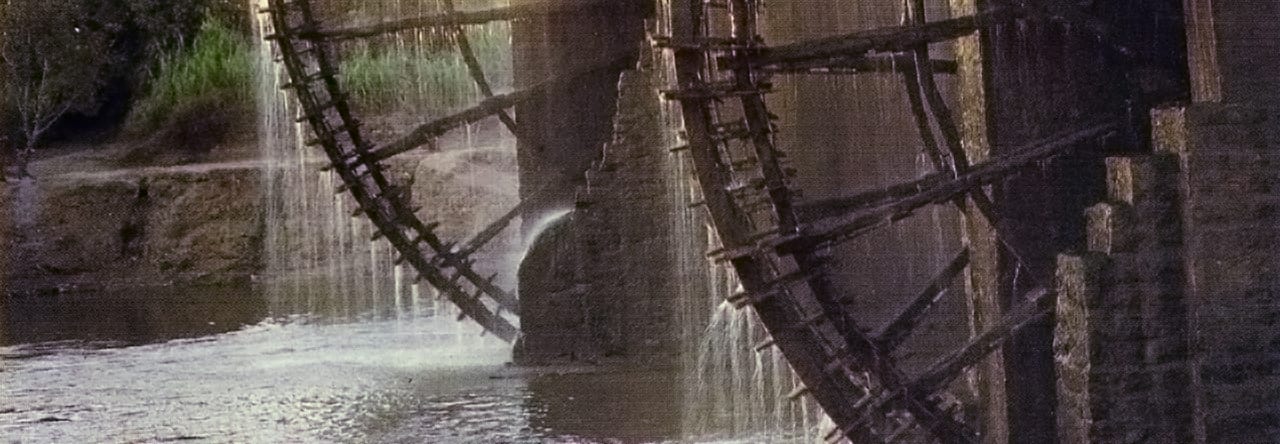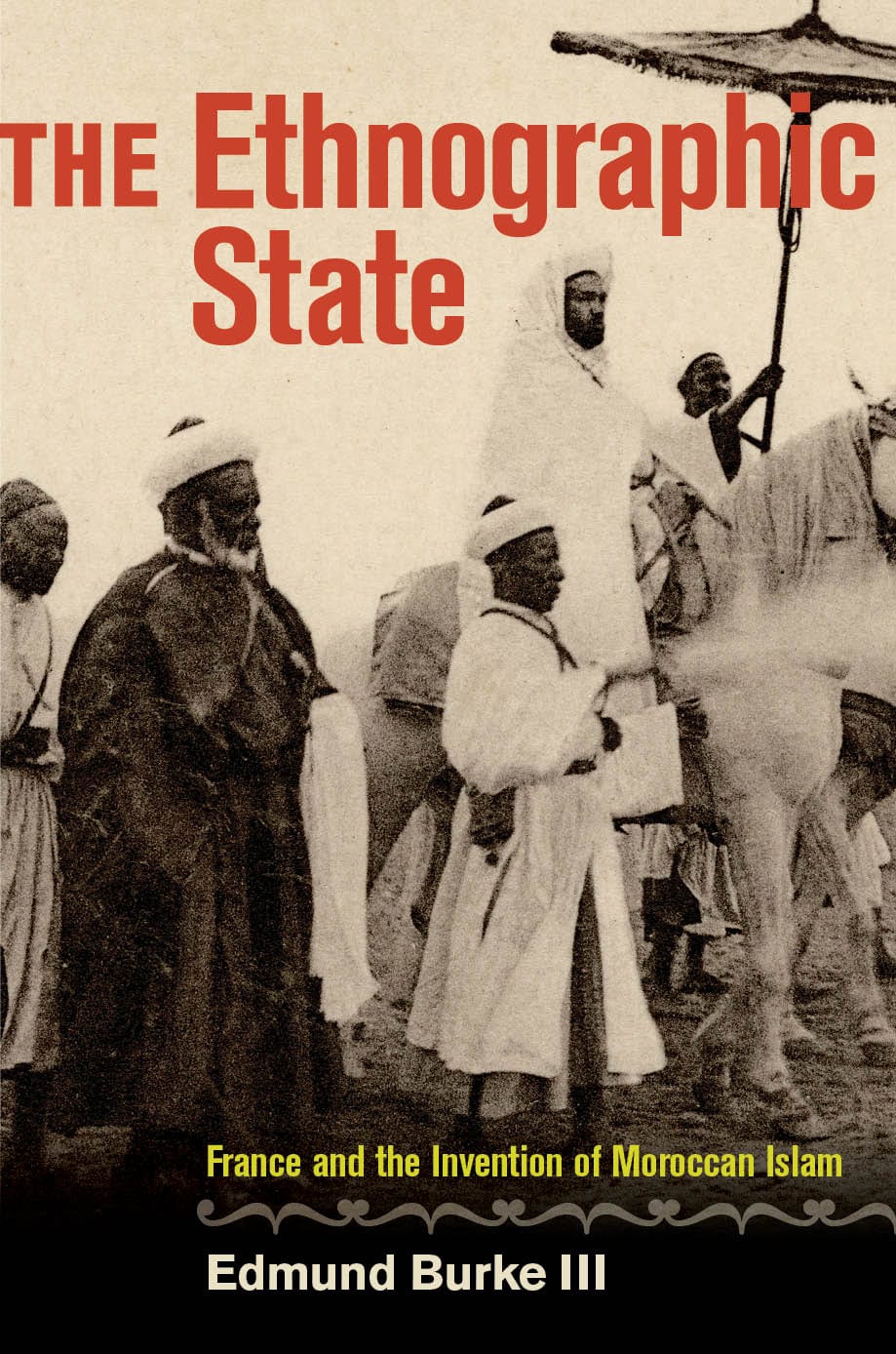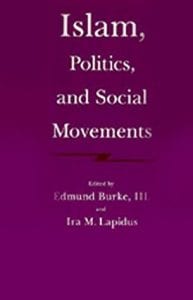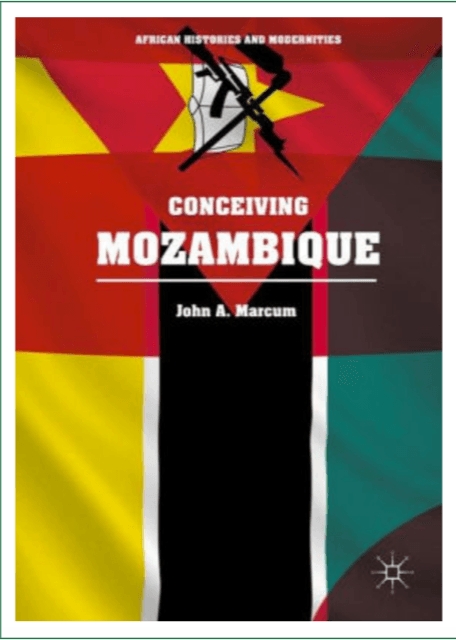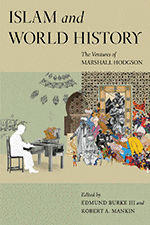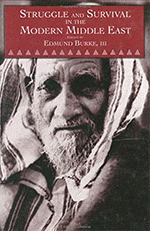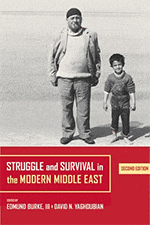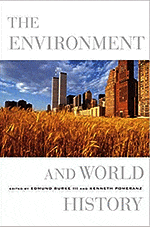Because of when and where I was trained and began teaching I was fated not to have a conventional research and teaching career. Although it was never my intent to disperse my energies so widely, my publications can be grouped into eight categories. They are Morocco & North Africa, Social Movements, Orientalism, World history, Marshall Hodgson, Social Biography, Environmental history and the modern Mediterranean in world history.
While the lenses employed changed over time (world, region, national, individual), I continued to return to the same three or four interests over the course of my career: the Middle East and North Africa, social movements and orientalism. At the end of my career I was teaching and writing on the deep history of earth and its fatal encounter with humans).
Morocco and North Africa
Prelude to Protectorate in Morocco: Precolonial Protest and Resistance, 1860-1912.
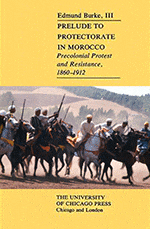 My 1970 dissertation and first book Prelude to Protectorate in Morocco Patterns of Pre-Colonial protest and Resistance (Chicago, 1974) provided a bi-focal history of Moroccan pre-colonial resistance to France, 1860-1912. At the time, pre-nationalist resistance was not in vogue as a subject. Using French, British and German printed and unprinted sources, as well as early published French ethnographies and interviews with elderly former resisters, I was able to chart the ebbs and flows of resistance in the period of Moroccan Question, culminating with the National Revolution of 1912.
My 1970 dissertation and first book Prelude to Protectorate in Morocco Patterns of Pre-Colonial protest and Resistance (Chicago, 1974) provided a bi-focal history of Moroccan pre-colonial resistance to France, 1860-1912. At the time, pre-nationalist resistance was not in vogue as a subject. Using French, British and German printed and unprinted sources, as well as early published French ethnographies and interviews with elderly former resisters, I was able to chart the ebbs and flows of resistance in the period of Moroccan Question, culminating with the National Revolution of 1912.
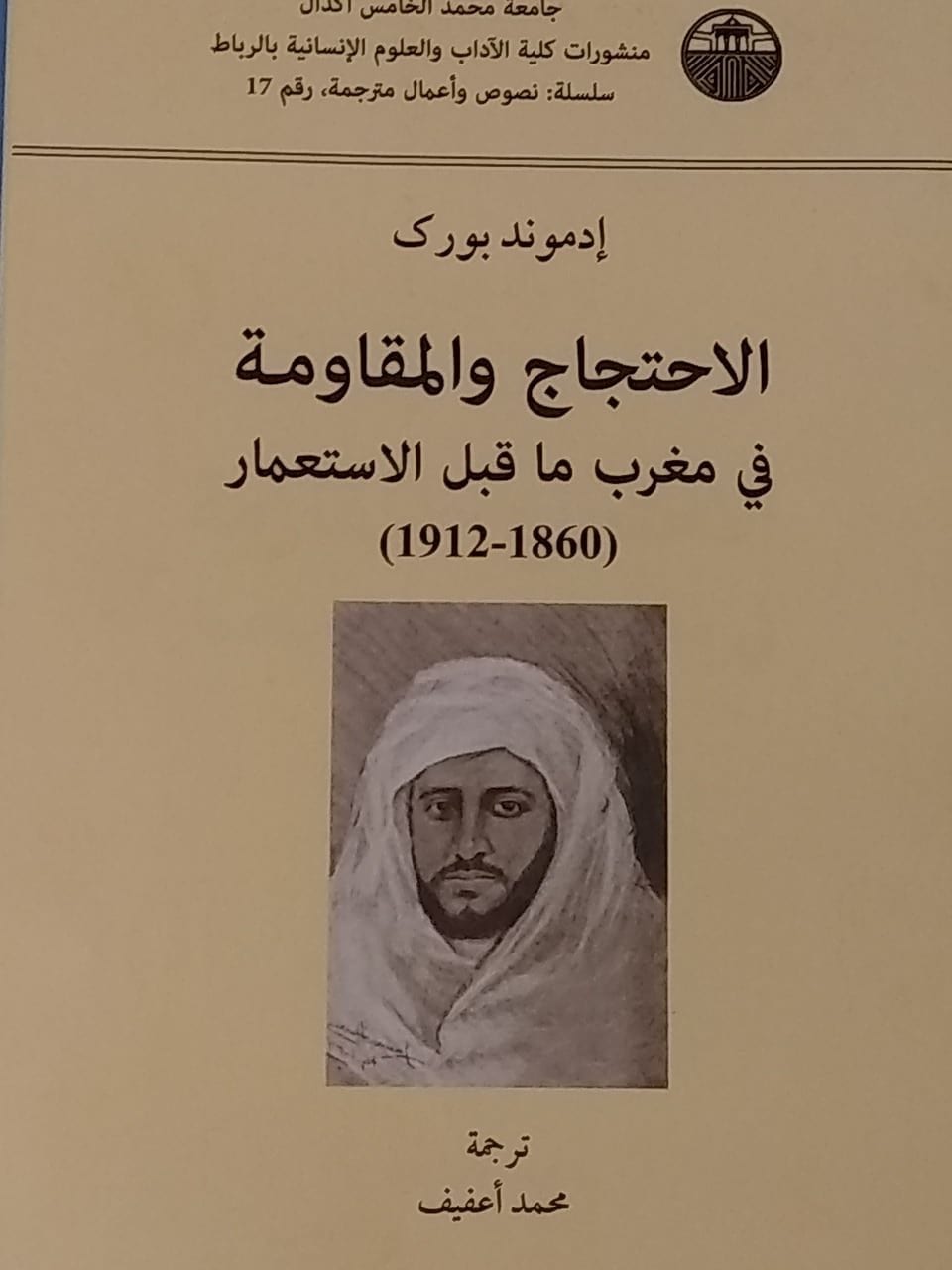 Fifty years along, Prelude remains the definitive volume on the subject. It was translated into Arabic by Mohamed Aafif and published in 2013 by the Université Muhammad V under the title Ihtijaj wa-l-muqawama fi Maghrib ma qabl al-isti‘imar (1912-1860).
Fifty years along, Prelude remains the definitive volume on the subject. It was translated into Arabic by Mohamed Aafif and published in 2013 by the Université Muhammad V under the title Ihtijaj wa-l-muqawama fi Maghrib ma qabl al-isti‘imar (1912-1860).
Over the course of my career I continued to be attracted by a numerous topics that derived from my dissertation. They included Social movements, Orientalism and Empire, and Social Biography. (On them see below).
Orientalism & Empire
The critique of colonial forms of knowledge continues to be an important subject of mine. Writing in the immediate aftermath of the Algerian revolution (1962) I was exposed to the Marxist critique of colonial forms of knowledge as developed by the Algerian nationalists and their French supporters. This provided a vital standpoint from which to read the French colonial sources on Morocco.
My interest on this subject continued to expand, and the result was a number of key articles (on which see below) as well as the following two books.
The Ethnographic State: France and the Invention of Moroccan Islam.
(California, 2014) explores the complex origins of modern Morocco in function of the French discourse on Moroccan Islam. Topics include the struggle over the control of French ethnography of Morocco, and how the Moroccan colonial archive was deployed in the creation of an allegedly scientific native policy and the invention of the discourse on Moroccan Islam. The Ethnographic State received an honorable mention from the North African Studies Association 2014 book award committee.
Genealogies of Orientalism: History, Theory, Politics.
(Lincoln: University of Nebraska Press, 2008). 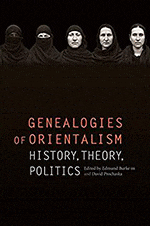 This edited book began out of conversations between me and my friend and colleague, David Prochaska.
This edited book began out of conversations between me and my friend and colleague, David Prochaska.
Our co-authored introduction remains one of the best overviews of the orientalism debate of the last century. The selections compare the British and French efforts to encode their respective colonial others (India and Algeria), and the theoretically-grounded critiques these generated (the Marxist critique, and that of Said). The book also provides key essays on orientalism and culture, and orientalism and power.
I am currently completing “France and the Sociology of Islam.” It traces the transformations of French social observation of Islam (not just in Algeria) from the Enlightenment to the independence of French Algeria. It asks: why was the emergence of a sociology of Islam so delayed, and with what consequences?
Social Movements
Starting with my (1970) dissertation, the study of social movements in comparative historical perspective was an important subject for me. It resulted to two edited books and several dozen published essays and conference papers on the subject. (For a list, see below).
Islam, Politics, and Social Movements (1990)
Islam, Politics and Social Movements was co-edited with Ira M. Lapidus and published by UC Press in 1988. It included essays on social movements in the Islamic cultural area from South Asia to North Africa and from the long nineteenth century to the Iranian revolution. The essays originated in a 1981 conference sponsored by the UC Berkeley Middle East Center. They featured contrasting methodological approaches: that of the new social history and the new cultural history. Many essays in this volume merit re-reading in our post 9/11 context.
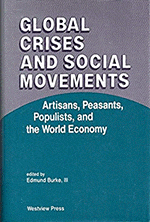 Global Crises and Social Movements.
Global Crises and Social Movements.
A second edited volume, Global Crises and Social Movements: Artisans, Peasants, Populists and the World Economy, was published in 1988. It featured essays by major scholars on four major moments of global crisis in the period from the mid-19th century to the mid-twentieth century; the revolutions of 1848; the political economy of agrarian social movements and twentieth century fascist and populist movements. It was the product of a 1981 conference sponsored by the UCSC Comparative and International Studies Group and funded by the National Science Foundation.
Conceiving Mozambique
I edited John A. Marcum, Conceiving Mozambique (New York: Palgrave, 2018). A colleague from early Merrill College days, Marcum had a long and distinguished career as political scientist of the liberation movements in ex-Portuguese Africa. He had always intended to write a book on the Mozambique revolution, but his progress on this project slowed as he took on a series of major administrative positions at UCSC and beyond. (From 1990 to 2007 he was Director of the University of California system’s Education Abroad Program). Nonetheless, Marcum was able to complete it before his death in 2013.
Conceiving Mozambique made a unique contribution to the highly contentious early history of the Mozambique liberation movement, and because Marcum had unique access to many of the principals, I agreed to see it into print. I was fortunate in being able to convince Michael A. Clough, one of Marcum’s collaborators on the international politics of the Mozambique liberation movement in the 1990s, to join me as co-editor.
World History
I think I have always had a comparative historical way of thinking. My first published essay, “Morocco and the Near East: Reflections on Some Basic Differences,” was an attempt to locate Moroccan history in the context of the Arab provinces of the Ottoman empire. While much of my writing has focused on Morocco, the implicit aim has always been the creation of a comparative history of the Arab world.
I received my Ph.D. (1970) from the Princeton joint program in European history and Middle Eastern history. For my first ten years I taught both modern French history and modern Middle East history to UCSC undergraduates. This intellectual background and the intellectual environment at UC Santa Cruz helped shape my development as a world historian.
However, I also wrote numerous world history articles over the course of my career. With David Christian and Ross E, Dunn, I co-authored an important conceptually oriented book aimed at classroom teachers of world history.
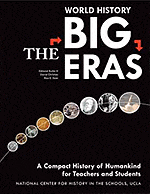 World History: The Big Eras A Compact History of Humankind (2012) is a first effort to write world history not as the history of civilizations, peoples and cultures, but as seen through a global lens over the entire history of human life on earth.
World History: The Big Eras A Compact History of Humankind (2012) is a first effort to write world history not as the history of civilizations, peoples and cultures, but as seen through a global lens over the entire history of human life on earth.
Published by the National Center for History in the Schools at UCLA, it is divided into nine “Big Eras” each of which seeks to address the major developments with respect to three main arenas of change: Humans the Environment, Humans and other Humans, and Humans and Ideas. The book is intended to accompany courses on world history employing the online curriculum, “World History For Us All”. See link: https://whfua.history.ucla.edu/eras/era6.php
Marshall Hodgson
As a teacher of Islamic history and world history I was greatly influenced by the conceptual approach of Marshall Hodgson (on whom I wrote numerous essays and edited two books—see below for more on this aspect of my thought).
Rethinking World History: Essays on Europe, Islam and World History.
In the early 1970s, I discovered Marshall Hodgson’s three volume textbook, The Venture of Islam: Conscience and History in a World Civilization (1974). Inspired by Hodgson, I decided to teach the two quarter survey of Islamic civilization survey.
At this time, I also wrote a major review of Hodgson’s three volumes for The International Journal of Middle East Studies. Without fully intending it, Hodgson became my bridge to teaching Islamic history as world history.
For Hodgson was not only an Islamicist, but also a world historian of remarkable brilliance whose interregional approach to world history still constitutes one of the principle alternatives to the world civilizations model of teaching the subject.
I edited a selection of Hodgson’s best essays on world history, published as Rethinking World History: Essays on Europe, Islam and World History (Cambridge, 1988).
Most recently I co-edited (with Robert Mankin) Islam and World History: The Ventures of Marshall Hodgson (Chicago, 2018). The fruit of a 2011 Paris conference, it is the first volume of critical essays on Hodgson and his work, primarily written by European and Muslim scholars.
Social Biographies/Struggle & Survival
In my career I must have taught the modern Middle East history survey (Muhammad to the present) several dozen times. I found the absence of ordinary people led readers to underestimate the complexities of the history. As a remedy, I began to solicit brief biographic essays from Middle East Studies colleagues in the 1980s.
Struggle and Survival in the Modern Middle East.
These were brought together in Struggle and Survival in the Modern Middle East (California) 1st edition 1993. A collection of 24 social biographies of Middle Eastern men and women, from different regional and historical settings, it provided students a way of understanding the larger patterns in Middle East history as viewed from the perspective of ordinary people’s lives.
I began to see the need to incorporate a series of biographies of ordinary people as a way to complicate the history of the region. In the 1980s I began to solicit essays from Middle East Studies colleagues working in different disciplines, places and time periods to supplement the standard textbook.
A second edition included six new biographies of individuals who lived in the latter part of the twentieth century, including four women activists. Co-edited with David Yaghoubian, it was published in 2006. It is still in print and remains relevant.
Environmental History
In the 1990s together with Mark Cioc and other colleagues and graduate students, we started a reading group on environmental history. I began a transition into environmental history that carried me through to the end of my teaching career, and led to two books and numerous articles and papers.
The Environment and World History (2009)
Among the books, the most important is undoubtedly The Environment and World History (California, 2009). It included some of the best papers of a National Endowment for the Humanities Research Seminar for College Teachers that I headed in 1998. It brought together a wide range of regional studies—including some in Russia, China, the Middle East, India, Southeast Asia, Latin America, Southern Africa, and Western Europe—together with some important thematic essays by leading scholars. It sought to enable instructors to incorporate the environment and environmental change into a truly integrative understanding of world history.
From UC Press: “The wide range of regional studies—including some in Russia, China, the Middle East, India, Southeast Asia, Latin America, Southern Africa, and Western Europe—together with the book’s broader thematic essays makes The Environment and World History ideal for courses that seek to incorporate the environment and environmental change more fully into a truly integrative understanding of world history.”
Contributors: Michael Adas, William Beinart, Edmund Burke III, Mark Cioc, Kenneth Pomeranz, Mahesh Rangarajan, John F. Richards, Lise Sedrez, Douglas R. Weiner
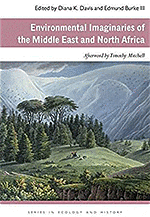 Environmental Imaginaries of the Middle East and North Africa (2014)
Environmental Imaginaries of the Middle East and North Africa (2014)
A second volume, Environmental Imaginaries of the Middle East and North Africa (2014) by Diana Davis and myself sought to draw attention to environmental history within the field of Middle Eastern Studies. In the introduction, Davis cogently argues against the tendency of colonial actors, scholars, and travelers to depict the Middle Eastern environment as degraded by its inhabitants, when in fact there’s much evidence that humans were not its primary cause.
Mediterranean History, 1400-2000
For the past two decades, my intellectual life has been focused upon writing a history of the Mediterranean in World History. Many conference papers and dozens of articles and book chapters have been published. Whether I have the strength to see this project through to completion remains unknown.
The projected book departs from the observation the entire Mediterranean, and not just a part of it experienced the same major transformations over the past six centuries, whether climate change, change in energy system, an increasingly rapid acceleration of change in key interactive arenas, including global communications, the rise of the modern state and of the world market.
For a glimpse of the scope of this work see my essay: “Towards a Comparative History of the Modern Mediterranean, 1750-1919,” Journal of World History vol. 4 no. 4 (2013), 907-938.
